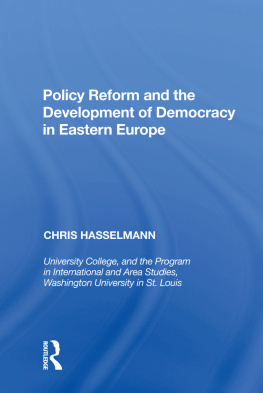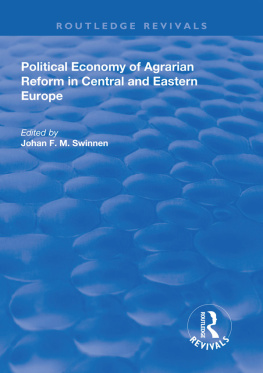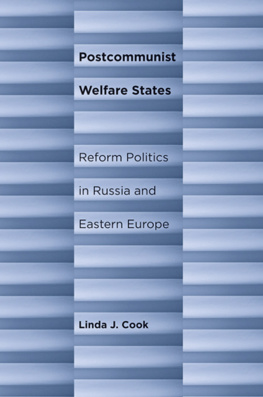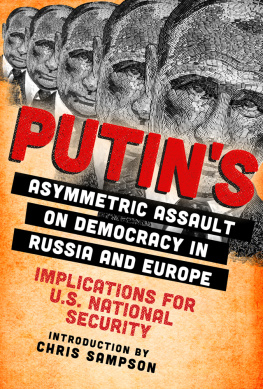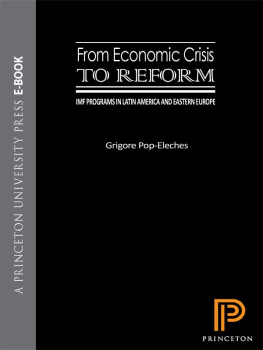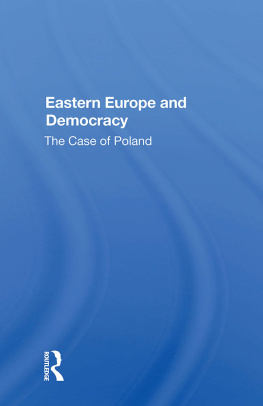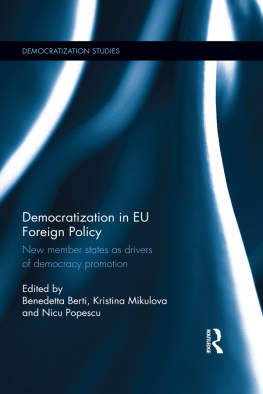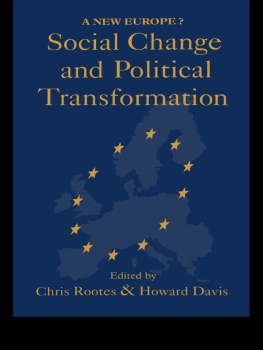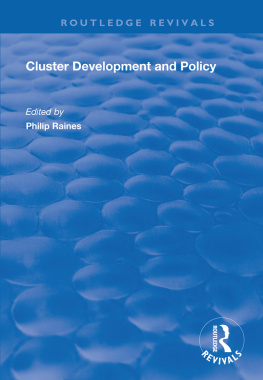First published 2006 by Ashgate Publishing
Reissued 2018 by Routledge
2 Park Square, Milton Park, Abingdon, Oxon, OX14 4RN
711 Third Avenue, New York, NY 10017, USA
Routledge is an imprint of the Taylor & Francis Group, an informa business
Chris Hasselmann 2006
Chris Hasselmann has asserted his moral right under the Copyright, Designs and Patents Act, 1988, to be identified as the author of this work.
All rights reserved. No part of this book may be reprinted or reproduced or utilised in any form or by any electronic, mechanical, or other means, now known or hereafter invented, including photocopying and recording, or in any information storage or retrieval system, without permission in writing from the publishers.
A Library of Congress record exists under LC control number: 2005026472
Notice:
Product or corporate names may be trademarks or registered trademarks, and are used only for identification and explanation without intent to infringe.
Publisher's Note
The publisher has gone to great lengths to ensure the quality of this reprint but points out that some imperfections in the original copies may be apparent.
Disclaimer
The publisher has made every effort to trace copyright holders and welcomes correspondence from those they have been unable to contact.
ISBN 13: 978-0-815-39108-1 (hbk)
ISBN 13: 978-1-351-15164-1 (ebk)
This project began with a basic question: what are the political consequences of privatization? Many of the economic consequences are by now fairly well understood whether in terms of the incentives facing entrepreneurs, corporate governance, the efficient allocation of resources, or the overall well being of the economy. In terms of politics, however, the subject seemed, comparatively speaking, less well developed. My interest in this question was further heightened by the unprecedented scope of the privatization process undertaken in Eastern Europe following the collapse of communism in 19891990. While other countries had from time to time privatized various select industries (e.g., railway service in the U.K.), the countries of Central and Eastern Europe had embarked on an endeavor the size and pace of which had never been seen before. At the same time, these countries were also undergoing a transition towards democracy. While there is no universally agreed upon definition for democracy, the myriad of proposed ones most often center around some concept of contestation, and the rules that govern it. What is generally agreed, however, is that like most competitions, resources are often critical to the outcome of political contests. So how did the redistribution of resources in Eastern Europe affect the transition to, and the consolidation of, democracy?
The process of answering this question was facilitated by the fact that each country had formulated its own unique approach to privatization that resulted in different reallocations of resources across the respective societies. With variation in the causal variable established, the tasked turned to finding a specific policy area in which to assess its impact. In this regard, the issue of pension reform offered an ideal setting. First, it is a substantively important issue that existed in every country across the region. Second, in each case, it was chronologically subsequent to the bulk of the privatization programs. Third, it introduced another interesting research question.
As described in , the World Bank had formulated a model of pension reform by the early 1990s, and the countries of Central and Eastern Europe were among the first to be confronted with it. In all cases, the policy advice and pressure from the World Bank was the same; however, each country adopted either slightly different versions of the model or, in the case of the Czech Republic, rejected it altogether in favor of revisions to the existing pension system. How do we account for this variation? Put another way, how do domestic and international political pressures interact to produce policy outcomes?
This issue of interaction is one central to both the fields of international relations, and political science more generally. Addressing it, however, also informs the larger question of democracy raised earlier. Because the international half of the interaction can be held constant, in that the policy advice and pressure applied by the World Bank was the same in all cases, studying the interaction itself allows us to compare the status of democracy throughout the region. How able were different domestic actors to shape and recast the World Banks policy advice into a unique set of policy reforms? How receptive were the political systems to domestic interest representation? How consolidated are these political systems in terms of democracy?
For reasons explained in , this research addresses these questions in the context of efforts to reform the communist-era pension systems in Poland, Hungary and the Czech Republic. In regard to privatizations political consequences, I argue that there are two. First, the privatization of state assets changes the resources groups of like-minded individuals have with which to overcome the challenges inherent in collective activity. This in-turn affects the political playing field, and can significantly affect the outcome of a political contest between groups with divergent interests. Second, because it has financial consequences, privatization also shapes individual attitudes towards each reform alternative, particularly those that promised to force retirees to rely more heavily on the market for their retirement benefits.
In terms of the interaction between domestic and international forces, I argue that international political pressures can affect domestic politics in two ways. First, they can expand the set of policy options under consideration by providing expert information and guidance. This can significantly reconfigure the political playing field. In the case of pension reform, the World Bank was able to introduce an alien policy option (pension privatization) into the mix, and endow it with sufficient credibility that seven countries in the region eventually adopted some form of it. Under any definition, this was an act of political power and influence. Second, international actors can change the costs and benefits associated with each alternative. By extending financial aid contingent on adopting a particular type of reform, the international community can alter the decision calculus made by local elites. So while the international community did not dictate policy outcomes anywhere, it certainly helped influence and structure the terms of debate, as well as the costs and benefits associated with each alternative.
Finally, regarding the status of democracy, I make two arguments; one concerning the three cases examined here, and one concerning the generalizability of the empirical test used to assess the democratic process across the region. Since 1989, the entire region, including the former republics of the Soviet Union, has been placed under the heading of transitional states. At the core of this transition lay the twin and intertwined goals of creating a more open political and economic system. What has remained unclear is exactly how we know when this transition period has ended. Both arguments are in response to this basic question.


